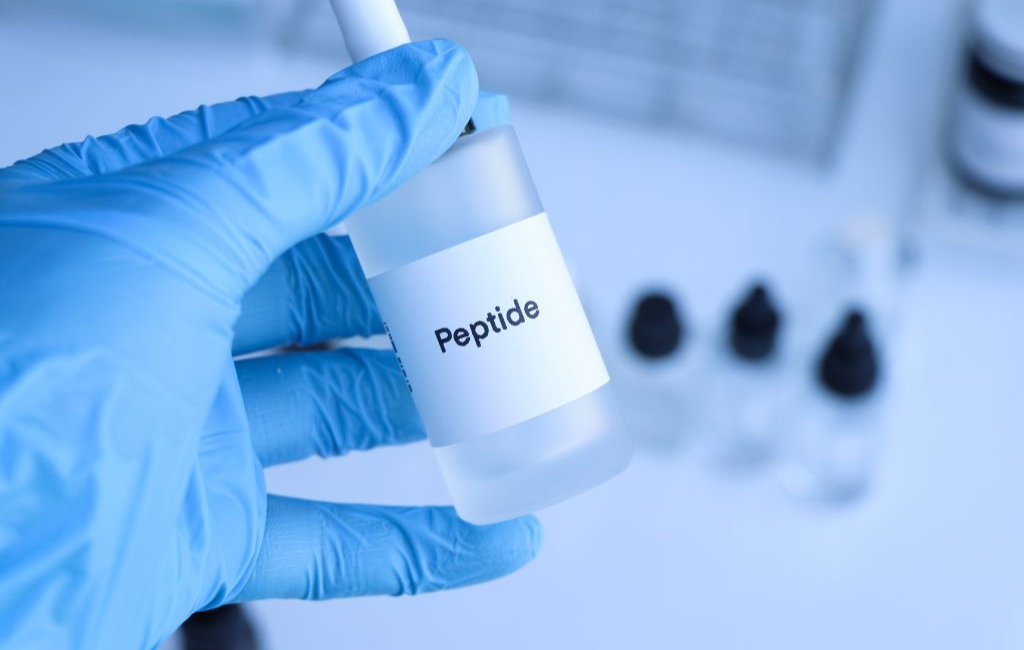-
Table of Contents
- Peptides Promote Faster Healing
- Understanding Peptides
- Types of Peptides
- The Science Behind Peptides and Healing
- Collagen Production
- Reducing Inflammation
- Improving Blood Circulation
- Case Studies and Examples
- Case Study: Diabetic Foot Ulcers
- Example: Post-Surgical Recovery
- Statistics on Peptide Efficacy
- Potential Applications of Peptides
- Dermatology
- Orthopedics
- Chronic Wound Management
- Challenges and Future Directions
- Conclusion
Peptides Promote Faster Healing
Peptides have garnered significant attention in the medical and scientific communities for their potential to accelerate the healing process. These short chains of amino acids play a pivotal role in various biological functions, including tissue repair and regeneration. This article explores how peptides contribute to faster healing, supported by examples, case studies, and statistics.
Understanding Peptides
Peptides are molecules composed of two or more amino acids linked by peptide bonds. They are smaller than proteins but share similar building blocks. Peptides can act as signaling molecules, influencing various physiological processes. Their ability to interact with cell receptors makes them valuable in therapeutic applications.
Types of Peptides
- Collagen Peptides: Derived from collagen, these peptides are known for their role in skin health and wound healing.
- Antimicrobial Peptides: These peptides have the ability to kill bacteria, fungi, and viruses, making them useful in preventing infections.
- Growth Factor Peptides: These peptides stimulate cell growth and division, aiding in tissue repair and regeneration.
The Science Behind Peptides and Healing
Peptides promote healing through several mechanisms. They can enhance collagen production, reduce inflammation, and improve blood circulation. These actions collectively contribute to faster tissue repair and recovery.
Collagen Production
Collagen is a protein that provides structure and strength to tissues. Peptides derived from collagen can stimulate the body’s natural collagen production. This is particularly beneficial for wound healing, as collagen helps form new tissue and close wounds more rapidly.
Reducing Inflammation
Inflammation is a natural response to injury, but excessive inflammation can delay healing. Certain peptides have anti-inflammatory properties, which can help modulate the inflammatory response and create a more favorable environment for healing.
Improving Blood Circulation
Peptides can enhance blood flow to injured areas, ensuring that essential nutrients and oxygen reach the site of injury. Improved circulation accelerates the healing process by supporting cellular functions and tissue repair.
Case Studies and Examples
Several studies have demonstrated the effectiveness of peptides in promoting faster healing. Here are a few notable examples:
Case Study: Diabetic Foot Ulcers
A study published in the journal “Wound Repair and Regeneration” investigated the use of collagen peptides in treating diabetic foot ulcers. Patients who received collagen peptide treatment showed a significant reduction in wound size compared to those who received standard care. The peptides accelerated the formation of new tissue and improved overall healing outcomes.
Example: Post-Surgical Recovery
In a clinical trial involving patients undergoing surgery, the application of growth factor peptides to surgical wounds resulted in faster healing and reduced scarring. The peptides stimulated cell proliferation and tissue regeneration, leading to improved recovery times.
Statistics on Peptide Efficacy
- A study published in “The Journal of Clinical Investigation” found that antimicrobial peptides reduced infection rates by 30% in patients with chronic wounds.
- Research in “The American Journal of Sports Medicine” reported that athletes using peptide-based treatments for muscle injuries experienced a 25% faster recovery time.
- A meta-analysis in “The British Journal of Dermatology” concluded that collagen peptides improved skin elasticity and hydration, contributing to better wound healing.
Potential Applications of Peptides
The potential applications of peptides in medicine are vast. They can be used in various fields, including dermatology, orthopedics, and chronic wound management. Here are some potential applications:
Dermatology
Peptides are widely used in skincare products to promote skin health and reduce the signs of aging. Their ability to stimulate collagen production and improve skin elasticity makes them valuable in treating conditions such as acne scars and wrinkles.
Orthopedics
In orthopedics, peptides can aid in the healing of bone fractures and soft tissue injuries. Growth factor peptides, in particular, have shown promise in accelerating the repair of tendons and ligaments.
Chronic Wound Management
Chronic wounds, such as pressure ulcers and venous leg ulcers, can be challenging to treat. Peptides offer a novel approach to wound management by promoting tissue regeneration and reducing infection risks.
Challenges and Future Directions
While peptides hold great promise, there are challenges to their widespread adoption. These include issues related to stability, delivery methods, and cost. Researchers are actively working on developing more stable peptide formulations and innovative delivery systems to overcome these challenges.
Future research is likely to focus on optimizing peptide therapies for specific conditions and exploring new peptide-based treatments. Advances in biotechnology and molecular biology will play a key role in unlocking the full potential of peptides in medicine.
Conclusion
Peptides have emerged as powerful tools in promoting faster healing. Their ability to enhance collagen production, reduce inflammation, and improve blood circulation makes them valuable in various therapeutic applications. Case studies and statistics highlight their efficacy in treating conditions such as diabetic foot ulcers and post-surgical wounds. While challenges remain, ongoing research and technological advancements hold promise for the future of peptide-based therapies. As our understanding of peptides deepens, their role in accelerating the healing process is likely to expand, offering new hope for patients and healthcare providers alike.
